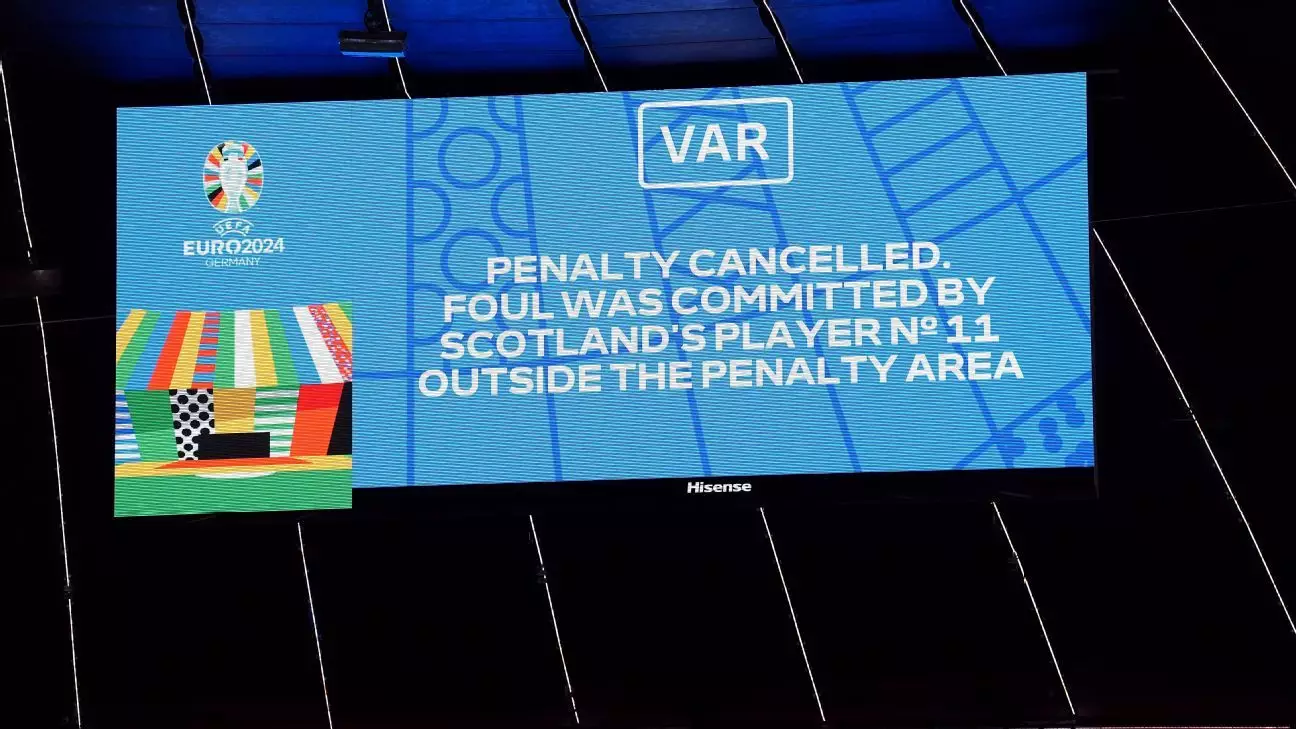In an exciting development for the world of football, the International Football Association Board (IFAB) has recently approved expanded trials of an alternative officiating system known as Football Video Support (FVS). This innovative system allows coaches to challenge on-field decisions, drawing a clear distinction from the traditional Video Assistant Referee (VAR) framework. Launched initially at the U20 and U17 FIFA Women’s World Cups, FVS seeks to introduce a cost-effective solution aimed primarily at leagues with limited resources.
FVS represents an evolution in officiating by empowering coaches with the ability to challenge up to two decisions per match. Pierluigi Collina, the chairman of FIFA’s referees’ committee, has been a proponent of this new approach and believes that the trials conducted in international tournaments will provide valuable insights for further implementation. As the football community continues to explore ways to refine officiating technology, FVS holds the potential to revolutionize how decisions are made and contested on the pitch.
One of the most significant aspects of FVS is its specific design for leagues that may not have the robust infrastructure typically available in top-tier divisions, such as the Premier League. The system is intended to operate effectively with a limited number of cameras—ideally four to five—making it a pragmatic solution particularly tailored for lower-resource environments like the Women’s Super League. This is a crucial thought process because the varying degrees of stadium infrastructure often hinder the successful implementation of traditional VAR systems.
While the challenges addressed by FVS are similar to those managed by VAR, the underlying mechanics differ considerably. Coaches are granted the authority to contest decisions with the referee assessing the challenge after having viewed a replay from the side of the pitch. This approach not only streamlines the decision-making process but also places greater responsibility and authority in the hands of the on-field referee, which is an essential distinction in ensuring the integrity of the game.
As the FVS trials gain momentum, feedback from earlier implementations will prove invaluable in assessing the strengths and weaknesses of the system. Collina has acknowledged the observations derived from the recent Women’s World Cups, noting that while the initial reactions appear positive, further scrutiny is essential. The primary focus of the trial is to evaluate the operational feasibility of FVS and how it can fit into the broader landscape of football officiating.
Crucially, the efficacy of FVS relies on clear communication about its limitations compared to VAR. Unlike VAR, FVS won’t offer an exhaustive review of each contested decision, particularly with aspects like offside calls, which require multiple camera angles for accurate assessments. The reality is that without comprehensive video coverage, there are instances where only evident infractions can be recognized, thus retaining the significance of the referee’s on-field ruling.
Beyond the FVS initiative, several other progressive trials are currently in discussion. Updates on trials targeting goalkeeper conduct or the authority of on-pitch communication indicate a broader shift towards enhancing game flow and officiating efficacy. For instance, a trial aimed at punishing goalkeepers for delaying tactics after gaining control of the ball introduces penalties for excessive holding time, thereby enhancing overall gameplay.
Moreover, the proposal for only team captains to communicate with referees could simplify interactions on the pitch, reducing potential disputes and fostering a more respectful atmosphere. Other innovations being explored include public announcements during lengthy VAR checks and advancements in semi-automated offside technology.
As the footballing world anticipates decisions on these trials at the IFAB’s Annual General Meeting scheduled for March 1, it remains clear that the evolving landscape of football officiating is set for transformation. The FVS could serve as a gateway to refining not only how decisions are made but also how they are contested by coaches and players alike, enhancing the game’s integrity and flow. While further research and analysis are necessary, the prospects for a more accessible and coach-centric review system are exciting, heralding a new chapter in the officiating of football.

Leave a Reply